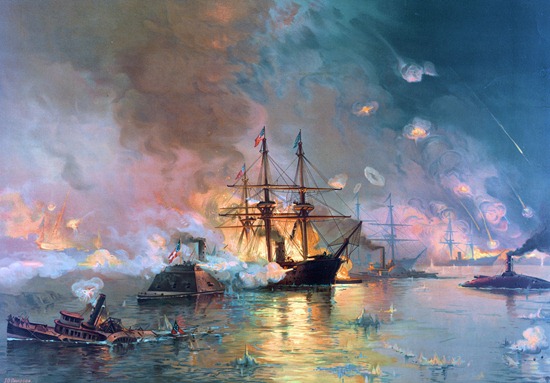April 25.—The bombardment of Fort Macon, N. C, by the combined forces of Gen. Burnside and Com. Goldsborough, terminated in the reduction and capture of the garrison.—(Doc. 135.)
—The Forts on Lake Ponchartrain, La., were this day evacuated by the rebel forces, and all their gunboats on the lake were burnt or otherwise destroyed.—Richmond Despatch, April 29.
—New-Orleans, La., surrendered to the naval forces of the United States, under the command of Flag-Officer D. G. Farragut.—(Doc. 149.)
—Major-Gen. C. F. Smith died at Savannah, Tenn., at four o’clock this afternoon, of dysentery. He was taken sick shortly after the occupation of Savannah by the forces under him.
—Major Von Steinhaus, Capt Botticher, and Capt Camp, of the Sixty-eighth regiment of New York volunteers; Lieut. Lombard, Battalion Adjutant Eighth Illinois cavalry, and Assist. Surg. Williams, First New-York artillery, were, by the order of President Lincoln, struck from the roll of the’ army, for being captured while straggling, without authority, beyond the National lines.
—Com. Paulding published a letter giving an account of the destruction of the Norfolk Navy Yard, in April, 1861.— (Doc. 148.)
—Henry Kuhl, Hamilton W. Windon, and Conrad Kuhl, having been tried by court-martial, in Western Virginia, and found guilty of murdering a Union soldier, the two first named were sentenced to be hung, and the third to wear a ball and chain, and perform hard labor during the war. Major-Gen. Fremont, in an order issued this day, confirmed the findings and sentence of the court. The hanging is to take place at Suttonville, on the ninth of May, and the ball and chain individual is ordered to Camp Chase, to satisfy the violated law in that locality.— Cincinnati Gazette, April 29.







 April 24.—Mr. Isaac Fuquet, the young man who had his arm cut off, died to-day. He lived only a few hours after the amputation. The operation was performed by Surgeon Chaupin of New Orleans, whose professional abilities are very highly commended. Dr. Hereford was well acquainted with Mr. F., and intends to inform his mother of his death.
April 24.—Mr. Isaac Fuquet, the young man who had his arm cut off, died to-day. He lived only a few hours after the amputation. The operation was performed by Surgeon Chaupin of New Orleans, whose professional abilities are very highly commended. Dr. Hereford was well acquainted with Mr. F., and intends to inform his mother of his death.


